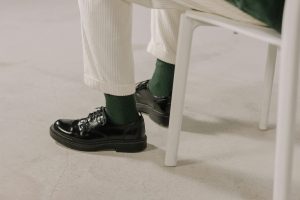Exploring the Ethical Side of Fast Fashion Alternatives
Fast fashion has taken the world by storm, providing consumers with trendy, affordable clothing at a rapid pace. However, there is a dark side to this phenomenon that is often overlooked – the ethical implications of fast fashion on both workers and the environment. But as awareness grows, so does the demand for alternative, more ethical options. So, what are these alternatives and how can we explore their ethical side? Let’s take a closer look at the world of fast fashion and the ethical alternatives that are on the rise.
The Rise of Fast Fashion
In today’s society, we have become accustomed to the idea of constantly consuming new clothing. Thanks to fast fashion brands, we can easily keep up with the latest trends at affordable prices. These brands mass-produce clothing at a rapid rate, using cheap labor and resources to keep up with the high demand.
On the surface, this may seem like a win-win situation – we get trendy clothes at a fraction of the cost and brands make a profit. However, the reality is much darker. The demand for cheap, fast fashion has fuelled a cycle of exploitation and environmental damage.
The Ethical Implications of Fast Fashion
Exploitation of Workers
The dark truth behind fast fashion is that it heavily relies on cheap labor from developing countries. Workers in these countries are often paid minimal wages and forced to work in unsafe and inhumane conditions. They work long hours, with little to no breaks, and are constantly exposed to harmful chemicals in the textile industry.
Additionally, fast fashion has also been linked to child labor and modern-day slavery. In countries like Bangladesh and India, where the majority of fast fashion production takes place, children as young as 5 years old are forced to work in these hazardous conditions. These workers are not only denied basic human rights, but they are also not properly compensated for their labor.
Environmental Impact
The rapid production and consumption of fast fashion also take a toll on the environment. The textile industry is one of the largest polluters in the world, emitting greenhouse gases and using large amounts of water and resources. Not to mention, the majority of fast fashion clothing is made using non-biodegradable materials, leading to massive amounts of waste in landfills.
Furthermore, the fast fashion industry is responsible for the exploitation of natural resources and destruction of ecosystems. For example, cotton, one of the most commonly used materials in the industry, requires large amounts of water and pesticides to grow, causing damage to the environment and local communities.
Exploring Ethical Alternatives
As the negative effects of fast fashion become more apparent, consumers are seeking out alternatives that align with their ethical values. These ethical alternatives focus on fair labor practices, sustainable production, and transparent supply chains.
Second-Hand Clothing
The most obvious alternative to fast fashion is purchasing second-hand clothing. Thrift stores, consignment shops, and online marketplaces offer a more sustainable and affordable option for those looking to refresh their wardrobe. Not only does buying second-hand clothing reduce the demand for fast fashion, but it also helps to reduce clothing waste.
Ethical Fashion Brands
Another option is to support ethical fashion brands that prioritize fair labor practices and sustainable production. These brands use eco-friendly materials, pay their workers fair wages, and have transparent supply chains. While the prices may be higher than fast fashion brands, the quality and ethical standards make it a worthwhile investment.
Slow Fashion
Slow fashion is a movement that advocates for the slowing down of the fashion industry. It focuses on creating high-quality, timeless pieces that are made to last, rather than following the fast-paced trend cycle. By supporting slow fashion, we can reduce our consumption and lessen the impact on the environment and workers.
The Power of Consumer Choice
Ultimately, the power lies in the hands of the consumer. By being more conscious of our fashion choices, we can make a positive impact on the industry. We can choose to support ethical alternatives and demand transparency from brands. We can also reduce our consumption and opt for quality over quantity.
In conclusion, exploring the ethical side of fast fashion alternatives is crucial in promoting a more sustainable and ethical fashion industry. As consumers, we have the power to change the harmful practices of fast fashion and create a better, more ethical future for fashion. So the next time you’re faced with the temptation of a cheap, trendy item, ask yourself – what ethical alternative could I choose instead?










